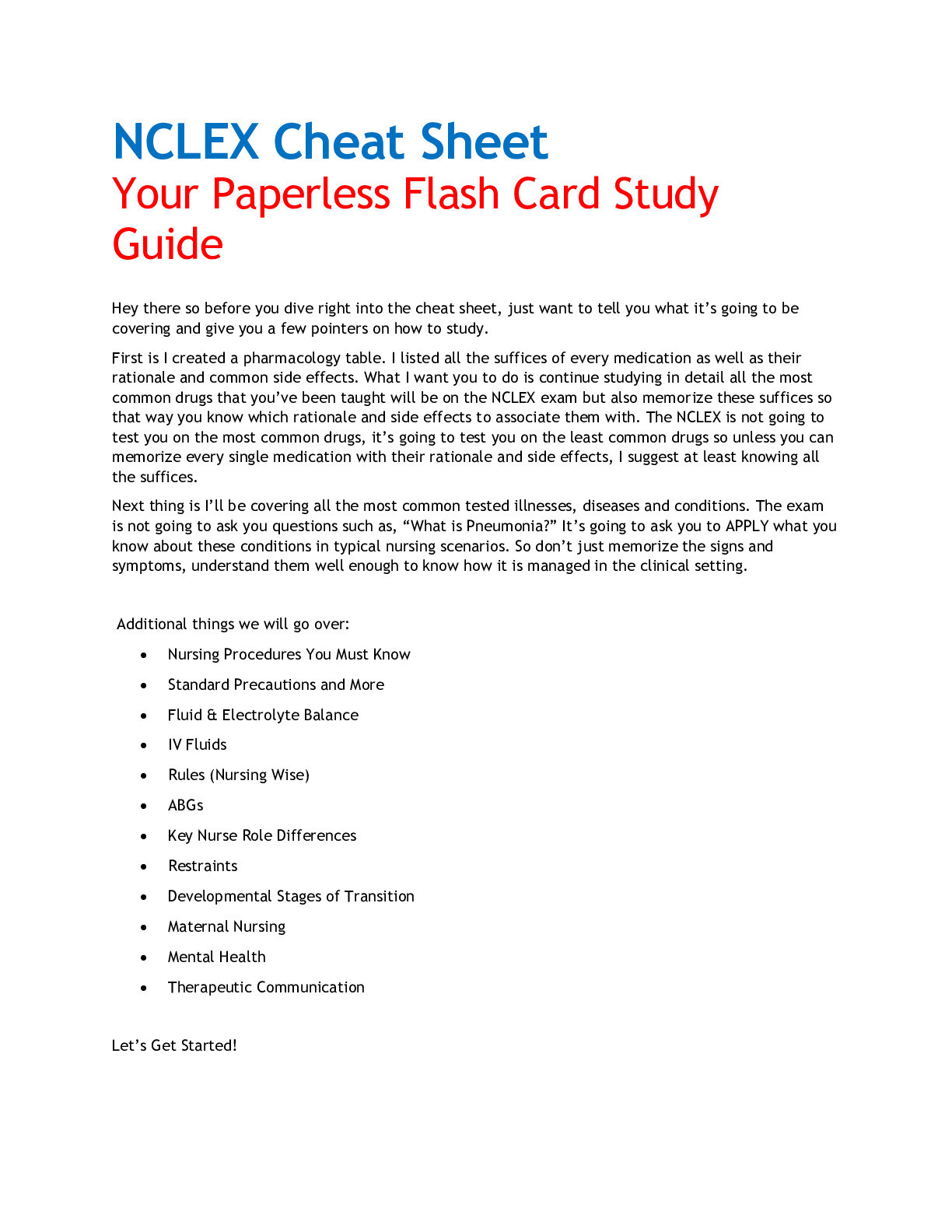List of Medical Diseases/Conditions
Atrial fibrillation (A Fib)
• Irregular heartbeat (arrhythmia) often, but not always, resulting in a fast heart beat
(greater than 100 bpm) at rest. Atrial fibrillation increases the risk of stroke so
patients with this condition typically are placed on anticoagulants. Ex: Warfarin.
Important things to monitor in these patients are INR levels, heart rate
...[Show More]
List of Medical Diseases/Conditions
Atrial fibrillation (A Fib)
• Irregular heartbeat (arrhythmia) often, but not always, resulting in a fast heart beat
(greater than 100 bpm) at rest. Atrial fibrillation increases the risk of stroke so
patients with this condition typically are placed on anticoagulants. Ex: Warfarin.
Important things to monitor in these patients are INR levels, heart rate and changes in
circulation.
Precautions: Standard
Pneumonia
• Pneumonia is an acute inflammation of the lungs caused by a bacterial, viral,
mycoplasmal, fungal, protozoal, or mycobacterial infection.
Types of Pneumonia:
Health care-associated pneumonia- - Affects patients who are not hospitalized but
who have close contact with the health care system, such as those who reside in longterm
care facilities or who have regular hemodialysis.
Community-acquired pneumonia- Occurs in the community setting or within the first
48 hours of admission to a health care facility because of community exposure.
Aspiration pneumonia- Can occur in a community or health care facility setting and
results from inhalation of foreign matter, such as vomitus or food particles, into the
bronchi (most common in older patients, patients with a decreased level of
consciousness, and those receiving nasogastric tube feedings); microaspiration, or
aspiration of microbiologic organisms.
Nursing Interventions include encouraging coughing and deep breathing. Administer
antibiotic therapy as ordered.
Precautions: Contact (May be placed on Droplet if patient is positive for specific
bacterial strains in sputum.
Diverticular disease
• Diverticulosis is a chronic condition of multiple diverticula formation that develops
most commonly in middle age. It is typically discovered during routine colonoscopy
screening, is often asymptomatic, and does not usually require treatment.
Diverticulitis is an inflammatory complication of diverticulosis. It causes signs and
symptoms that can have serious consequences. Most uncomplicated diverticulitis
patients with mild symptoms are treated with antibiotics and a clear liquid diet.
Nursing interventions includes monitoring for strict intake and output and
administering antibiotics.
Precautions: Standard
Crohn’s disease
• Crohn’s disease is an inflammatory disorder affecting mostly the distal ileum and
colon. Crohn disease results in the malabsorption of water and nutrients, which may
lead to fluid and electrolyte imbalances. Anemia often results, secondary to poor
dietary intake and/or absorption of vitamins and nutrients.
Nursing Interventions include monitoring intake and output and laboratory values.
Precautions: Standard
Irritable bowel syndrome
• IBS is a disorder that produces chronic, uncontrolled inflammation of the intestinal
mucosa, which can affect any part of the gastrointestinal (GI) tract, causing edema,
ulceration, bleeding, and profound fluid and electrolyte losses. Patients experience
abdominal cramping, pain with diarrhea, nausea, dehydration, weight loss, cachexia,
and anemia. Patients may experience an average of 5 to 10 diarrhea stools each day
that also contain mucus leading to anemia, hypovolemia, and malnutrition. Anemia is
related to active bleeding and poor intake and/or absorption of nutrients.
Nursing interventions includes monitoring hemoglobin levels and intake and output.
Precautions: Standard
[Show Less]
